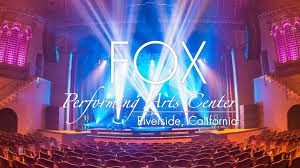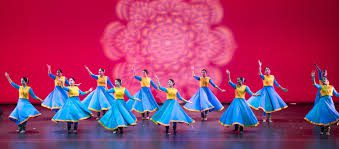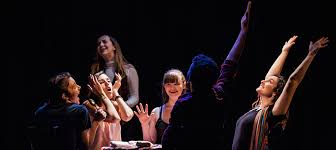What is innovative counseling? At Innovative Counseling we treat individuals including children and adolescents, adults, couples, families, and groups. We are a private practice that provides exceptional mental health services to all community members. Our Mission is to provide the best clinical care rooted in safety, security, and attachment.
Can you be a Counsellor with tattoos? Tattoos cannot be offensive or discriminatory or ‘extreme’, whatever that means, and we have to look ‘professional’ so face and neck tattoos are not allowed. Neither is ‘extreme’ hair colour.
Why is creativity important in Counselling? Creativity is one of several key factors in counselling. Counselling can already be described as creative because it nurtures new ideas, perspectives, and knowledge. Increasing creativity, mindfulness, and openness to other expressions can extend the dialogue and depth of therapy.
What is a creative counselor? The Creative Counselor is a licensed professional in many fields of mental health who offer more to clients. The Creative Counselor offers a unique and creative approach to clients in order to promote emotional well being and healing. This type of counselor / therapist takes the eclectic approach to therapy.
What is innovative counseling? – Additional Questions
What is creativity in guidance and Counselling?
Creativity, vocational guidance, career counselling. Creativity can be considered a key resource in human development, education and adaptation. It is often defined as the ability to generate novel productions (ideas or work) that are valuable in their context (Lubart, 1994; Runco & Jaeger, 2012).
Why should a counselor be creative in helping his client?
Why creative counseling is helpful. Creativity helps clients problem solve through the experience of expressing emotions which, therefore, allows clients to be more in tune with themselves. By expressing emotion through the creative process, you are representing and processing your emotions.
What are the three constructs in establishing creativity in counseling?
He used three definitions to guide his extensive creativity research: a research definition, an artistic definition, and a simple survival definition (Sternberg, 1998).
Does therapy affect creativity?
However, non-drug treatments such as psychotherapy seem to have no negative impact on creativity. It’s important to seek treatment for mental health concerns, especially when they affect daily life.
Is creativity linked to mental illness?
Results: Of 29 studies that evaluated possible associations between creativity and mental illness, 15 found no evidence to link creativity and mental illness, 9 found positive evidence, and 5 had unclear findings.
How creativity can heal?
How Does Creativity Improve Mental Health? Being creative can increase positive emotions, reduce depressive symptoms and anxiety, and improve the function of our immune systems.
What does creativity do to the brain?
A creative act such as crafting can help focus the mind, and has even been compared to meditation due to its calming effects on the brain and body. Even just gardening or sewing releases dopamine, a natural anti-depressant. Creativity reduces anxiety, depression, and stress… And it can also help you process trauma.
What increases creativity?
Check out some of these fascinating and often unusual tricks that might help spark your creativity.
- Go for a Walk. Petri Oeschger / Getty Images.
- Reward Yourself.
- Create Some Psychological Distance.
- Surround Yourself With Inspiration.
- Create Restrictions.
- Daydream.
- Re-Conceptualize the Problem.
- Get Emotional.
What hormones are responsible for creativity?
Dopamine is your achievement hormone. Higher the dopamine levels in your body, higher is your alertness, focus, creativity, long-term memory and concentration. Dopamine is the motivation molecule that drives you to seek rewards in achieving goals and enables you to take the effort it requires to be successful.
Are creative people more likely to have anxiety?
Artists Are More Anxious Than People in Other Professions—But They Are Also Better at Coping With Challenges, a New Study Finds. Researchers at the Yale Center for Emotional Intelligence found that creativity is higher among people with certain psychological traits.
Is creativity linked to depression?
While studies and observations have shown a connection between depression and creativity, there is no conclusive evidence that someone suffering from depression would be “more creative.” However, it’s worth noting the similar traits that are associated with both mood disorders and creativity.
How do you overcome creative anxiety?
How To Overcome Creative Anxiety
- Accept Imperfection & Be Realistic. First and foremost, a huge factor that contributes to creative anxiety is the unrealistic strive for perfection, and to meet unrealistic deadlines.
- Don’t Be Afraid To Take a Break.
- Diversify Your Income Streams.
How do you push through creative burnout?
Creative burnout is a state of emotional, physical, and mental exhaustion around creative work. The symptoms can be hard to pinpoint, and the potential causes are many.
How to bounce back from creative burnout
- Get support.
- Take a break.
- Make space for self-reflection.
- Look at your past work.
- Start with the basics.
What causes creative burnout?
Creative burnout happens to people who care a lot and want to do good work. It often comes from good intentions or genuine stresses or concerns, so we don’t want to compound stress here.
How do you fix art burnout?
Artists Share Their Advice on Preventing Burnout
- Give yourself a break.
- Don’t hibernate, however tempting it is.
- Do something creative, but not related to your practice.
- Distract and inspire yourself with the creativity of others.
- Realize that art might be a job—and that’s okay.
What does artistic burnout feel like?
Creative burnout is the feeling that you’ve drained all of your creativity, and there is nothing left. If you’re dreading to start work, feel tired and stressed all the time and suspect you’ll never be able to create something good ever again, you might be experiencing a creative burnout.
How do you know if you’re creative?
Creative people like to daydream and imagine the possibilities and wonders of the world. They can immerse themselves in imagination and fantasy, yet remain grounded enough to turn their daydreams into reality. They are often described as dreamers, but that doesn’t mean that they live with their heads in the clouds.



